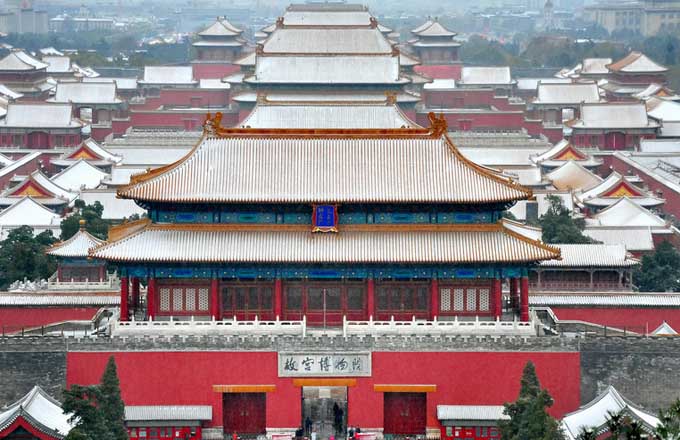TCM demand grows globally
Foreign drugmakers explore opportunities in traditional Chinese medicine as the remedies become popular in Western markets, report Liu Jie in Beijing and Wang Hongyi in Shanghai
Traditional Chinese medicine, or TCM, holds a unique place in Chinese healthcare, which is widely accepted by the 1.3 billion Chinese - old and young, urban and rural.
Nowadays, it's also growing in popularity in Western markets, where many want to pursue a more natural lifestyle.
International drugmakers are exploring ways, including joint ventures and co-development partnerships, to combine Western approaches to drug discovery with the material repertoire of TCM.
"No matter the model, we believe this bodes well for the industry in general, as it may help accelerate TCM standardization and modernization, as well as TCM acceptance in overseas markets," said Bruce Liu, partner and co-head of the Pharma & Healthcare practice at Roland Berger Strategy Consultants.
But that expansion effort faces challenges, he added.
In November, Nestle Health Science, a fully owned subsidiary of Nestle SA, and Chi-Med, the pharmaceutical and healthcare subsidiary of Hong Kong-based Hutchison Whampoa Ltd, agreed to form a 50-50 joint venture to research, develop, manufacture and market innovative nutritional and medicinal products derived from botanical plants.
The joint venture focuses on gastrointestinal health and may in future expand into metabolic diseases and brain health, according to Nestle.
The new partnership gives Nestle access to the Chinese side's TCM library of more than 50,000 extracts from 1,200-plus herbal plants. Moreover, the Chinese side can offer TCM expertise and a botanical-based research and development platform, including discovery research, non-clinical and pharmaceutical science functions, and an understanding of the botanical guidelines and regulations for the joint venture.
"This joint venture provides us with an opportunity to develop and commercialize truly innovative and scientifically validated botanical-based nutrition," said Luis Cantarell, president and CEO of Nestle Health Science.
Other western giants have also sought out TCM opportunities. In 2009, Switzerland-based Novartis AG announced TCM-related R&D in China and plans to spend 500 million yuan ($80 million) to merge and acquire Chinese TCM enterprises in the coming years.
UK-based pharmaceutical company GlaxoSmithKline PLC has also established a new research unit in China to carry out a molecular study in TCM.
GSK said innovative TCM is an important part of the company's R&D in China, with a strategy of integrating the existing TCM knowledge of diseases with modern drug discovery technology and clinical trial methodology.
At the end of 2011, Hutchison MediPharma Ltd- a subsidiary of Chi-Med - reached an agreement with international drugmaker AstraZeneca PLC for global licensing, co-development and commercialization of Volitinib, a TCM extract that halts the progress of breast and lung cancer. Under the terms of the agreement, development costs for Volitinib in China will be shared between the two sides, with Hutchison MediPharma continuing to lead the development in China. AstraZeneca will lead and pay for the development for the rest of the world.
In addition to creating partnerships, many international pharmaceutical companies have chosen to cooperate with Chinese academic research institutes, given the local partners' rich resources of talent, basic research and academic expertise.
France's largest drug maker, Sanofi-Aventis SA, has worked with the Hong Kong University of Science and Technology to develop modern versions of traditional Chinese medicines to treat chronic diseases such as diabetes and cancer.
GSK has also established partnerships with academic bodies and TCM experts in China. "We are developing novel therapeutic TCM mixtures as prescription medicines through innovative extraction methods and combinations, and we use clinical data/evidence to differentiate from existing TCM products on the market," said Zang Jingwu, senior vice-president and head of GSK R&D China.
Novartis set up a six-year research partnership with the Shanghai Institute of Materia Medica in 2009 to identify and test the pharmacological properties of some traditional medicines.
The Shanghai institute is a unit under the Chinese Academy of Sciences and currently the largest natural-herb research base in the nation. A series of multinationals, including Johnson & Johnson Pharmaceuticals and MSD - known as Merck & Co in the United States and Canada - have established R&D cooperation agreement with the institute.
Related:


























